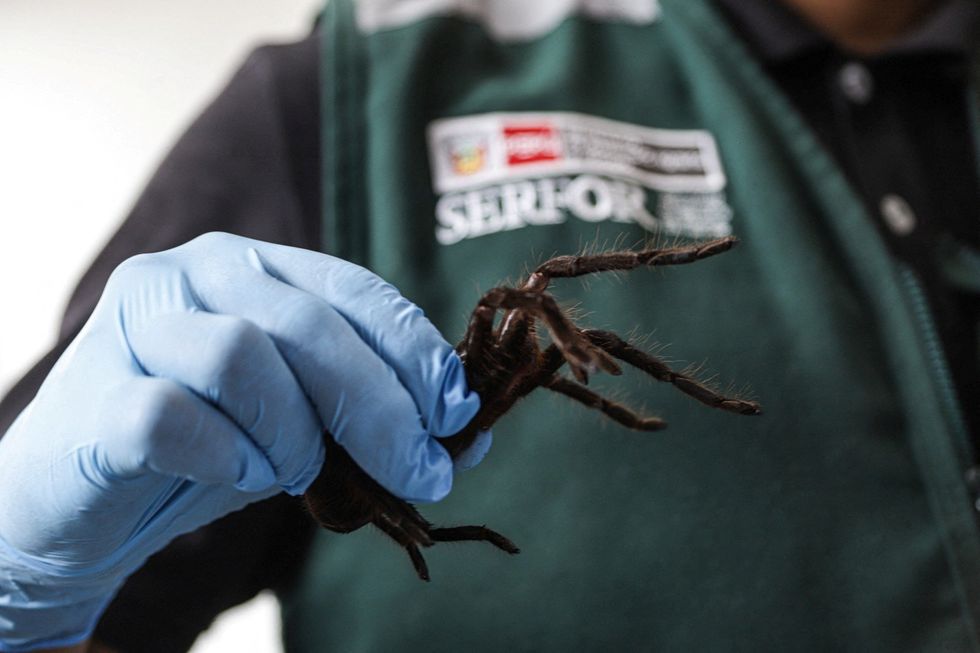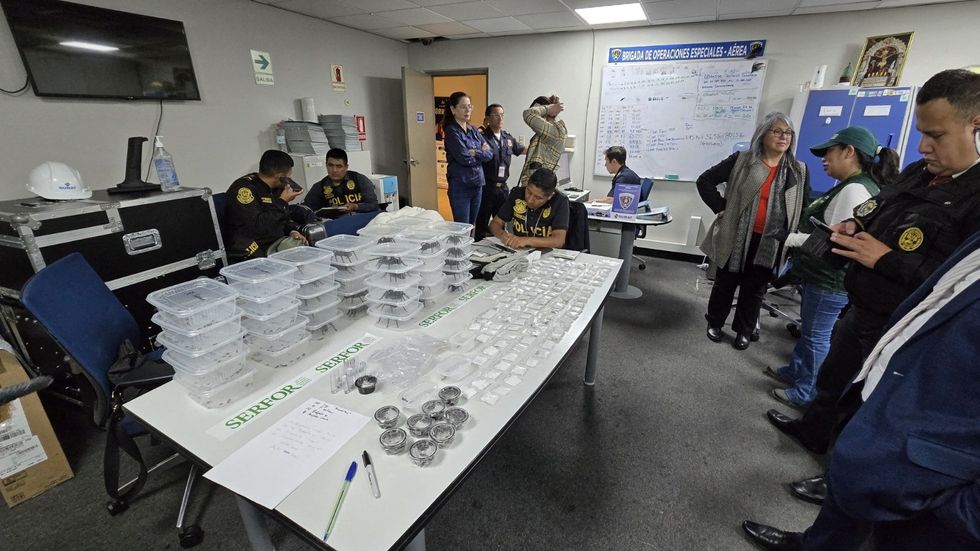A South Korean man has been arrested at Lima’s Jorge Chavez International Airport after attempting to smuggle hundreds of exotic creatures strapped to his body.
The 28-year-old was found with 300 tarantulas, approximately 100 centipedes and nine bullet ants concealed beneath his jumper.
Airport security officers detained the unnamed man after noticing his unusually swollen stomach, police said.
All the creatures have since been handed over to animal protection services, according to Pilar Ayala, a biologist from Peru’s national forestry and wildlife service.

All the creatures have since been handed over to animal protection services,
REUTERS
Ayala explained how the smuggler had concealed the creatures: “It was observed that the citizen had placed these specimens in small zip-lock bags with filter paper.”
“They were placed around his body, contained by two girdles,” she added.
The illegal trade in tarantulas is highly lucrative, driven primarily by private collectors seeking exotic specimens for their collections.
Professor Alice Hughes from Hong Kong University told the Telegraph that many collectors try to gather the creatures “like Pokemon”.

The creatures were found concealed in small zip-lock bags with filter paper
RUETERS

The 28-year-old was found with 300 tarantulas, approximately 100 centipedes and nine bullet ants concealed beneath his jumper.
REUTERS
The practice of collecting rare tarantulas has become increasingly concerning for wildlife experts and law enforcement agencies.
These spiders are particularly sought after in the illegal wildlife trade due to their unique characteristics and appeal to collectors.
The impact of such smuggling on tarantula populations is particularly severe, according to experts.
Chris Hamilton, a professor of insect studies at Idaho University, told the BBC: “Tarantulas are especially vulnerable to poaching because they’re long-lived – some reach 30 years old – and females reproduce late and infrequently.”
He warned of the devastating effects on their survival, adding: “This is terrible for withstanding human disturbance (habitat destruction, pet trade collecting, or climate change) because of how long it takes to regenerate populations.”